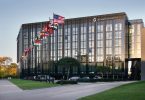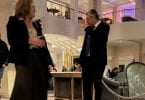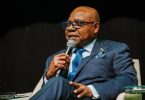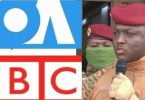A Muslim airline pilot who claims his religion cost him his job has told an employment tribunal that his bosses feared he might copy the September 11 attacks.
The Heathrow-based pilot, who cannot be named for legal reasons, worked for a well-known British carrier but was judged a security risk after he was arrested over an alleged terror plot.
According to the airline, he was ‘in a position to divert or sabotage an aircraft’.
Asked by his barrister what he thought this meant, the pilot, who is British, replied tearfully: ‘I felt they believed I was going to fly planes into buildings.
‘I believe the basis they had for that was my race and religion, because of the actions of other people of a similar race and religion.’
The pilot strongly denies the airline’s claim that he was unsuitable to fly because of his links to two alleged extremists suspected of ‘planning to use an aircraft as part of a hostile or terrorist act’.
Both men were detained under the Terrorism Act. However, charges against one of them were later dropped while the other was cleared by a jury.
The pilot and his brother – an active member of the Islamist extremist group Hizb ut-Tahrir – were also arrested but never charged.
During a subsequent investigation by the airline, the pilot was questioned about comments it was claimed he had made on a flight deck in 2005 about the September 11 attacks.
He is alleged to have said that those killed in 2001 were ‘not innocent victims’. But he denied making the remark and the matter was not pursued. Despite clearing the pilot of misconduct, the airline’s operations manager decided that he might still pose a security risk.
During cross-examination last week, the manager accepted there was nothing in the investigation file to indicate that the pilot would do anything ‘hostile’ with any aircraft.
But when the pilot’s barrister, Clive Sheldon QC, asked if the manager thought the pilot might ‘fly a plane into a tall building’, he replied that it was a possibility.
He added: ‘The possibility is there for anybody if they are that way inclined. It’s about having 100 per cent confidence in your pilot.’
Earlier, one of the airline’s security managers told the tribunal that ‘anyone caught up in a terror plot has the potential to damage the good name’ of the company.
‘Particularly a Muslim with a Pakistani-sounding name?’ asked Mr Sheldon. The manager replied: ‘No, I do not accept that.’
The tribunal was told that the airline had never dismissed a pilot in connection with an alleged terror plot before and that the case was ‘unique and unprecedented’.
Concerns about the two suspected extremists were first raised when they paid for flying lessons and a light aircraft in cash. During a raid on the London home of one of the pair, detectives found documents relating to the operation of aircraft, a flight map of Britain and Hizb ut-Tahrir literature.
Giving evidence, a union official who represented the pilot during the airline’s internal inquiry said some of the questions asked about the two men were ‘offensive’.
The official said: ‘The airline provided no evidence at all to substantiate its allegations that the pilot supported members of a suspected terrorist organisation.
‘The only political organisation mentioned by the airline was Hizb ut-Tahrir. Hizb ut-Tahrir is not a suspected terrorist organisation. It is a lawful, political organisation.
In any event, the pilot is not and has never been a member of Hizb ut-Tahrir.
‘His brother is a member, but this is irrelevant in our view. In the past, the airline’s employees have never been judged on the political views and affiliations of their relatives and acquaintances.
‘Even though the airline was notified that the pilot was not a member of Hizb ut-Tahrir, the company still presented him with a copy of an alleged Hizb ut-Tahrir document – The Islamic Rule On Hijacking Aeroplanes – dating back over 25 years.
‘It was utterly incomprehensible to me that the airline appeared to think a pilot with ten years’ unblemished service – and regularly in control of a plane – would somehow support or possibly be involved with hijacking.’
The official added: ‘The airline’s line of questioning came across to us as, “You’re a Muslim man with a Pakistani-sounding name. You must therefore believe in all this stuff or at least be familiar with it.”
‘I expressed the view that in spite of having done nothing wrong, the pilot was being treated in this unprecedented manner because he is a Muslim with a Pakistani-sounding name.
‘He has been caught up in the periphery of a criminal investigation involving two other Muslim men with Pakistani-sounding names. In other words, this whole case appeared from the very outset to be one based on guilt by association.’
The pilot, who was dismissed in October 2010, is claiming racial and religious discrimination. The hearing continues.






















